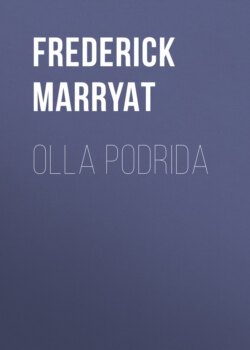Читать книгу Olla Podrida - Фредерик Марриет - Страница 18
Chapter Sixteen.
ОглавлениеLiege, June 2.
The academy or college established at Liege in 1817 is very creditable to the Liegeois. Much has been done in fifteen years: the philosophical apparatus, collections of minerals and natural history, are all excellent for instruction, although the minerals are not very valuable. The fossils found in the Ardennes are very interesting, and ought to be a mine of wealth to the Liegeois, as by exchanging them they might soon have a valuable collection. It is a pity that the various museums of Europe do not print catalogues, not of their own collections only, but also of the duplicates which they can part with, so that they may be circulated, not only among the national collections, but also among private cabinets; by so doing they would all become more perfect. It is currently reported that more duplicates have been allowed to perish in the cellars of the British Museum than would have furnished all the cabinets in Europe. It may be replied, that other cabinets had nothing to offer in exchange; but that is only a surmise: and even if they had not, they should have been presented to other institutions abroad. Science ought not to be confined to country or people: it should be considered as universal.
To the college is annexed a botanical garden. There is nothing I dislike more than a botanical garden. I acknowledge the advantages, perhaps the necessity, of such institutions; but they always appear to me as if there was disarrangement instead of arrangement. What may be called order and classification seems to me to be disorder and confusion. It may be very well to class plants and trees for study, but certainly their families, although joined by man, were never intended to be united by God. Such a mixture in one partition, of trees, and shrubs, and creeping plants, all of which you are gravely told are of one family. I never will believe it: it is unnatural. I can see order and arrangement when I look at the majestic forest-trees throwing about their wild branches, and defying the winds of heaven, while they afford shelter to the shrubs beneath, which in their turn protect and shelter the violets that perfume all around. This is beautiful and natural—it is harmony; but in a botanical garden every thing is out of its place. The Scripture says, “Those whom God hath joined let no man put asunder;” may we not add, Those whom God hath sundered let no man presume to join. I felt as I looked at the botanical garden as if it were presumptuous and almost wicked, and as it was on the banks of the Meuse, I sat down on the wall and recovered myself by looking at the flowing river, and thinking about utility and futility, “and all that sort of thing and everything else in the world,” as poor Matthews used to say—and there I sat for an hour, until my thoughts revolved on the propriety of going back and eating my dinner—as Mrs. Trollope used to do when she was in Belgium.
As I was walking about in the evening, I perceived a dirty little alley illuminated with chandeliers and wax candles. There must be a ball, thought I, or some gaiety going on: let us inquire. “No, sir,” replied a man to whom I put the question, “it’s not a ball—it is a Monsieur who has presented to an image of the Virgin Mary which is up that court, a petticoat, which, they say, is worth one thousand five hundred francs, and this lighting-up is in honour of her putting it on.” The race of fools is not extinct, thought I. I wonder whether, like King Ferdinand, he worked it himself. Belgium is certainly at this present the stronghold of superstition.
